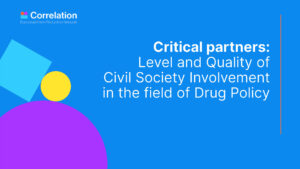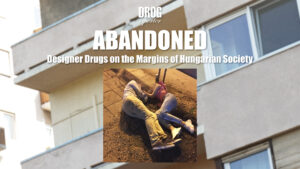The new opinion paper adopted by the European Economic and Social Committee (EESC) calls for less law enforcement and more health and human rights in the new EU Drugs Strategy.
The European Economic and Social Committee is a consultative body of the European Union (EU) established in 1958. It is an advisory assembly composed of “social partners”, namely: employers (employers’ organisations), employees (trade unions) and representatives of various other interests.
In its current opinion on the new EU Drugs Strategy, the EESC made several important observations and recommendations. Here are a few highlights!
The EESC
- points out that the external evaluation of the previous EU Drugs Strategy identified imbalances in the use of financial resources, in particular at the expense of demand reduction interventions;
- emphasises the findings of the evaluation report of the Civil Society Forum on Drugs found that numerous evidence-based prevention and harm reduction interventions are completely non-existent or have low coverage;
- points out that inappropriate measures to combat drugs, such as the unilateral criminalisation of drug users, cause serious health and social harm and therefore exacerbate societal security problems rather than solving them;
- states that the law enforcement oriented Drugs Agenda proposed by the European Commission is a step backwards from the previous balanced and evidence-based approach;
- therefore it welcomes the decision of Member States to revise the document and draft a new EU Drugs Strategy.
The EESC recommends Member States to
- significantly improve the proportion of demand reduction interventions within drugs policy, in terms of both the number of strategic interventions and the allocation of resources;
- significantly improve the coverage and quality of social and health services for drug users, reviewing the indicators already used in the previous action plan;
- use sanctions and law enforcement only as a last resort in cases where other intervention tools can be shown to be ineffective;
- include an evaluation of the impact of drugs policy on human rights, which will, for example, measure the negative effects of criminalisation and institutional discrimination on drug-using populations belonging to vulnerable groups;
- establish as soon as possible, on the basis of the model already used to reduce demand, indicators for assessing the effects of supply reduction interventions;
- based on the principle of “first, do no harm”, a frank and robust evaluation and debate are needed to address the negative impact of drug policies and the regulatory environment, the effects of social stigmatisation and unjustified criminalisation, and barriers to access to treatment.
The full paper can be downloaded below!
Peter Sarosi







